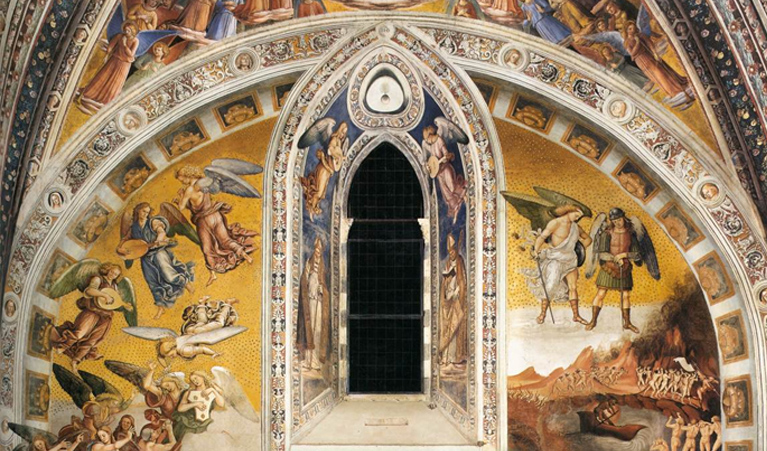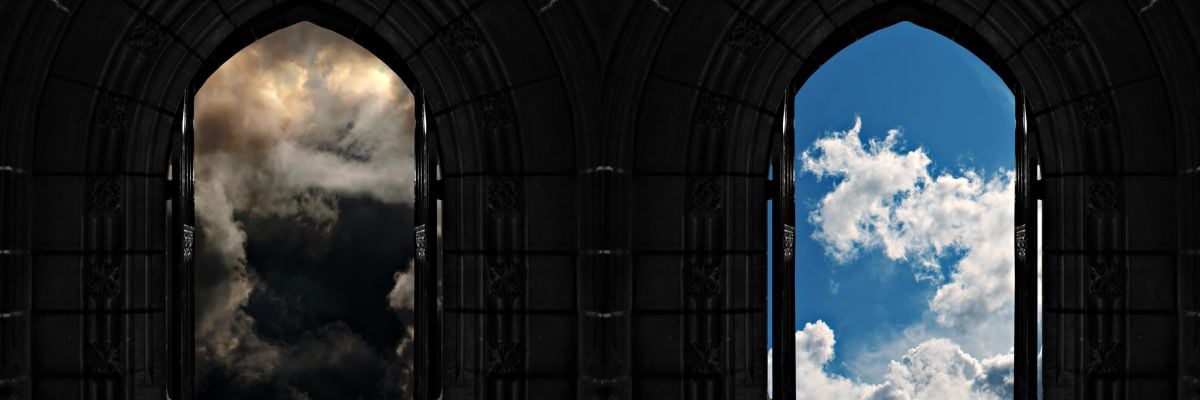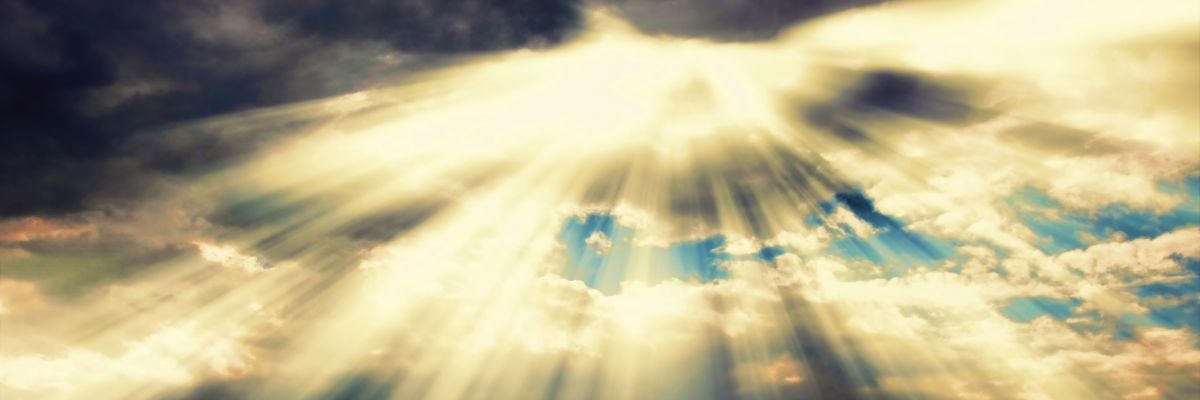*Permission to post in full*
Question:
I've heard that Fr. Richard Rohr teaches some pretty sketchy stuff. Do you know anyone who has a summary of his teachings?
Answer:
For whatever good he does, Fr. Richard Rohr, O.F.M., is not a reliable teacher of the Catholic Faith. All quotes below by Fr. Rohr are taken from his book
Everything Belongs: The Gift of Contemplative Prayer.
To Fr. Richard Rohr, Jesus Christ is an ideal guide of sorts, but he’s not truly Lord.
Jesus made clear that he came to save the world (
John 3:16), and to this end he founded and commissioned his Church to make disciples of all nations (
Matt. 28:18-20). Jesus made clear that he is uniquely
the way, truth, and life (
John 14:6), that his truth would set us free (
John 8:31-32), that those who listened to his apostles and their successors listened to him, and that those who didn’t rejected him and his heavenly Father who sent him (
Luke 10:16).
Jesus wasn’t afraid to be a demanding teacher, and many left him when they couldn’t stomach his teaching, e.g., on the Eucharist (
John 6:47-71). Jesus also proclaimed that he came to bring a sword and not peace if peace meant a false irenicism in which merely human family members were chosen at the expense of faithful alliance with him, their Savior (
Matt. 10:34-39).
Rohr’s Jesus is much more benign. For Rohr, Jesus merely gives “ideal eyes by which to see the
realnature of reality” (emphasis added). “Real nature” is important, because Rohr does not present Catholicism as it really is. Rather, it’s a non-demanding, non-threatening, ultimately optional way of life: “The gospel is not a competing idea. It’s that by which we see all ideas in proper context. We believe as Christians that Jesus gave us the ideal eyes by which to see the real nature of reality. He does not
lead with his judgments”(95, emphasis original).
Some might say Rohr is at least partially right. For example, Jesus did not lead with
judgment against the woman at the well (John 4). But after introducing himself as the Messiah and showing the woman her worth, he called her to holiness, noting she had been married five times and was living with someone to whom she wasn’t married. Rohr misses this in assessing the Gospel as he overlooks the hard words Jesus has about various sins in the Sermon on the Mount and elsewhere: “But note that Jesus’ concept of ‘the reign of God’ is
totally positive—not fear-based or against any individual, group, sin or problem” (107, emphasis original).
Even more fundamentally, Rohr falls into religious indifferentism regarding the basic mission of Christ and his Church:
I think Christianity has created a great problem in the Western world by repeatedly presenting itself, not as a way of seeing all things, but as one competing ideology among others. . . . Simone Weil, the brilliant French resistor [a woman who sadly declined to be baptized and become Catholic], said that ‘the tragedy of Christianity is that it came to see itself as replacing other religions instead of adding something to all of them.’ I could not agree more(93, emphasis added).
Click to expand...
Rohr provides insight into his spiritual outlook when he reveals that he believes in
apokatastasis(also spelled
apocatastasis), a heresy known more in modern times as “universalism,” which teaches that all the damned, whether men or women or fallen angels, will ultimately be restored and join God in heavenly glory for all eternity. This belief was made somewhat popular by the Church Father Origen, who was misguided on a number of doctrinal matters.
Citing unnamed early Church Fathers, Rohr describes this “universal restoration” as “the real meaning” of Christ’s resurrection, which means that God’s love is “so perfect and so victorious that in fact it would finally win out in every single person’s life” (131). He erroneously says that this view “gave rise to the mythology of purgatory” (131). He adds incorrectly that
apocatastasis is not a heresy:
When I read the history of the church and its dogma, I see apokatastasis was never condemned as heretical. We may believe it if we want to. We were never told we had to believe it, but neither was it condemned (132, emphasis original).
It’s true that some people, like St. Gregory of Nyssa, espoused
apocatastasis in the early Church when the Church had not pronounced definitively on the matter. But as the belief spread it was condemned by the regional Council of Constantinople in 543, and Pope Vigilius confirmed the council’s pronouncements.
Ten years later, the Second Council of Constantinople, an ecumenical or universal council, reaffirmed the condemnation of various heretics and “their sinful works,” including Origen, with no correction on the recent condemnation of
apocatastasis (canon 11). If
apocatastasis were indeed true, the Church’s infallible teachings on mortal sin and the eternal punishment of hell, for example, would be rendered meaningless.
It is true, as Rohr says, that the Church has never pronounced that any particular person is in hell (132). But the Church has reaffirmed the existence of hell and its eternal punishments, most recently in Pope Paul VI’s
Credo of the People of God (12) and the
Catechism of the Catholic Church (1033-37). Lest there be any doubt, the
Catechismaffirms—citing St. John Damascene, who lived from 676 to 749—“There is no repentance for the angels after their fall, just as there is no repentance for men after death” (393).
In light of his espousal of
apocatastasis, Rohr’s book title—
Everything Belongs—makes more sense. In the end, there is no condemnation, only reconciliation and eternal communion with God: “For me, the utter powerlessness of God is that God forgives. . . . God seems to be so ready to surrender divine power” (153). Rohr’s God is all mercy, and a distorted mercy at that, and thus there is no justice.
Consequently, for Rohr there is a tension between truth and love. Jesus says that his truth will set us free (
John 8:32), but Rohr says “the law does not give life; only the Spirit gives life, as Paul teaches in Romans and Galatians” (40). But Paul is speaking of the Old Covenant law, not the liberating New Covenant law of Jesus, and Rohr overlooks St. Paul’s hard pronouncements on mortal sin and damnation. “True religion is always about love. Love is the ultimate reality” (103), Rohr adds, whereas “a lot that’s called orthodoxy, loyalty and obedience is grounded in fear” (102). “The great commandment is not ‘thou shalt be right,’” he says. “The great commandment is to ‘be in love’” (88).
Love trumps truth, because God will win out in every person’s life, Rohr says, since “God will turn all our human crucifixions into resurrection” (132). Here Rohr fails to see that hell is man’s “definitive
self-exclusion from communion with God” (CCC 1033, emphasis added), and that true love entails not compelling one to have communion.
God will not force us to accept heaven.
In citing
Acts 3:21 to defend universal restoration, Rohr fails to see that those who will not listen to the prophet—namely, Jesus—will be destroyed (
Acts 3:23). This is not to pronounce eternal judgment on non-Catholics and thus exclude invincible ignorance but rather to affirm further that hell exists and that human beings can choose it. Choices do have consequences, some of them possibly eternal. In that light, the Second Vatican Council Fathers teaches in sober urgency regarding non-Catholics:
But often men, deceived by the Evil One, have become vain in their reasonings and have exchanged the truth of God for a lie, serving the creature rather than the Creator. Or some there are who, living and dying in this world without God, are exposed to final despair. Wherefore to promote the glory of God and procure the salvation of all of these, and mindful of the command of the Lord, ‘Preach the Gospel to every creature,’ the Church fosters the missions with care and attention” (Lumen Gentium 16, emphasis added, footnotes omitted).
Click to expand...
In contrast, even though Jesus founded the Catholic Church (
Matt. 16:18-19) and gave the Great Commission to make disciples of all nations (
Matt. 28:18-20), for Rohr the Church and her mission are not so important and urgent:
Institutional religion is a
humanly necessarybut also
immature manifestation of this ‘hidden mystery’ by which God is saving the world. . . . Institutional religion is never an end in itself, but merely a wondrous and ‘uncertain trumpet’ of the message (180, emphasis original).
I personally do not believe that Jesus came to found a separate religion as much as he came to present a universal message of vulnerability and foundational unity that is necessary for all religions, the human soul, and history itself to survive. Thus Christians can rightly call him “the Savior of the world” (
John 4:42) but no longer in the competitive and imperialistic way that they have usually presented him. By very definition, vulnerability
and unity do not compete or dominate. In fact, they make competition and domination impossible.
The cosmic Christ is no threat to anything but separateness, illusion, domination, and any imperial ego. In that sense, Jesus, the Christ, is the ultimate threat, but first of all to Christians themselves. Only then will they have any universal and salvific message for the rest of the world” (181-82, emphases added).
Click to expand...
Jesus Christ does indeed love all and thus died for all, but the true unity he preaches requires a choice to accept or reject him and his Church, as he preached 2,000 years ago. The Christ whom Rohr preaches is not the authentic Jesus, and his related proclamation of the gospel is not the one that that the Church has proclaimed and safeguarded for 2,000 years with the power of Holy Spirit. As a result, Rohr remains an unreliable and spiritually dangerous guide for Catholic and non-Catholic alike.
Who is Fr. Richard Rohr? Why are his writings controversial? Is he a reliable teacher of the Catholic faith? Click here for the answers.
www.catholic.com



